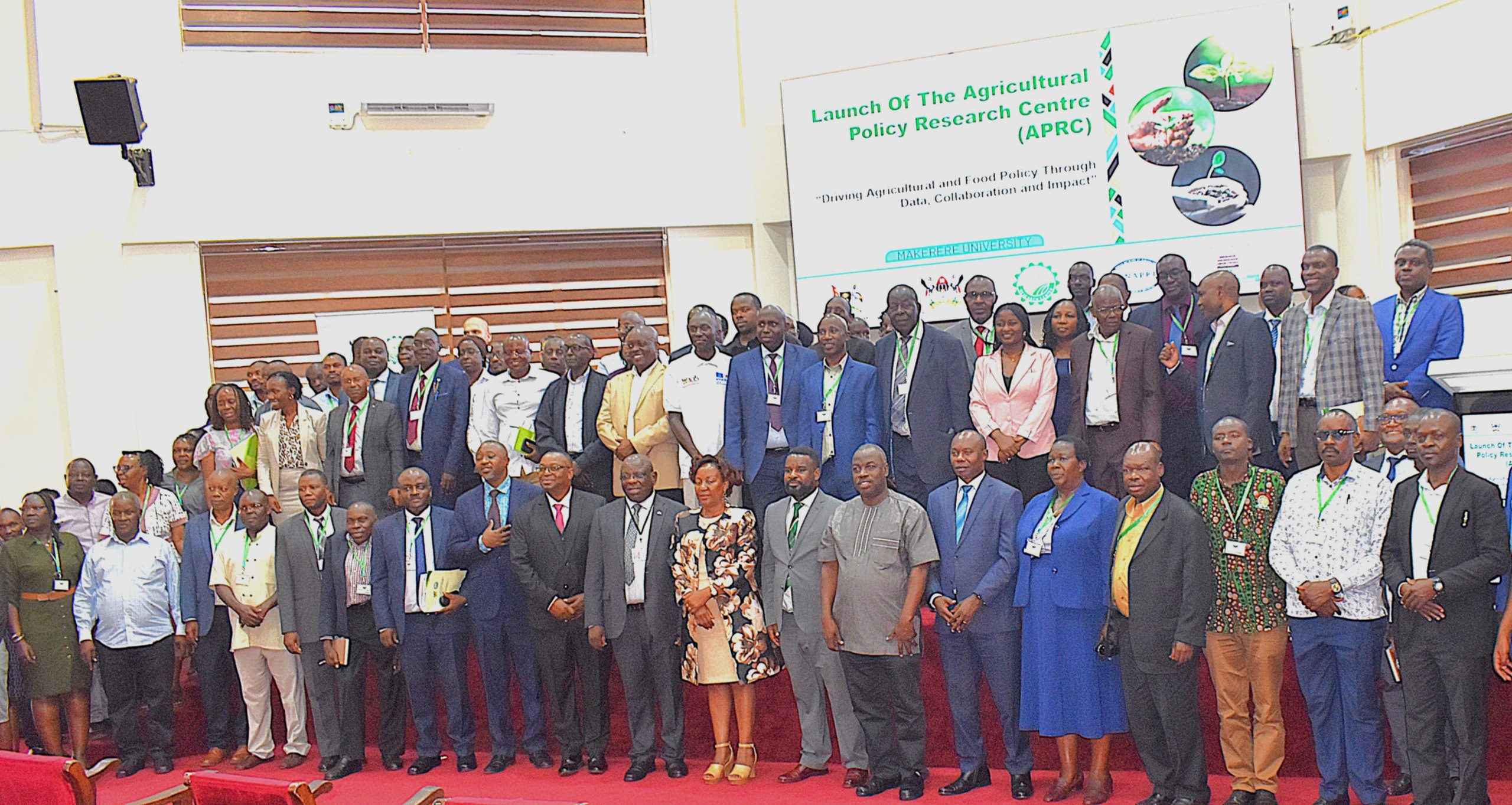
Uganda’s agricultural sector is a cornerstone of its economy, with the potential to drive sustainable economic growth, reduce poverty, and promote agro-industrialization. The government has set ambitious targets, including increasing agriculture’s contribution to the GDP, ensuring food and nutrition security by 2030, and creating decent employment opportunities for women and youth, with the goal of halving poverty levels by that same year.
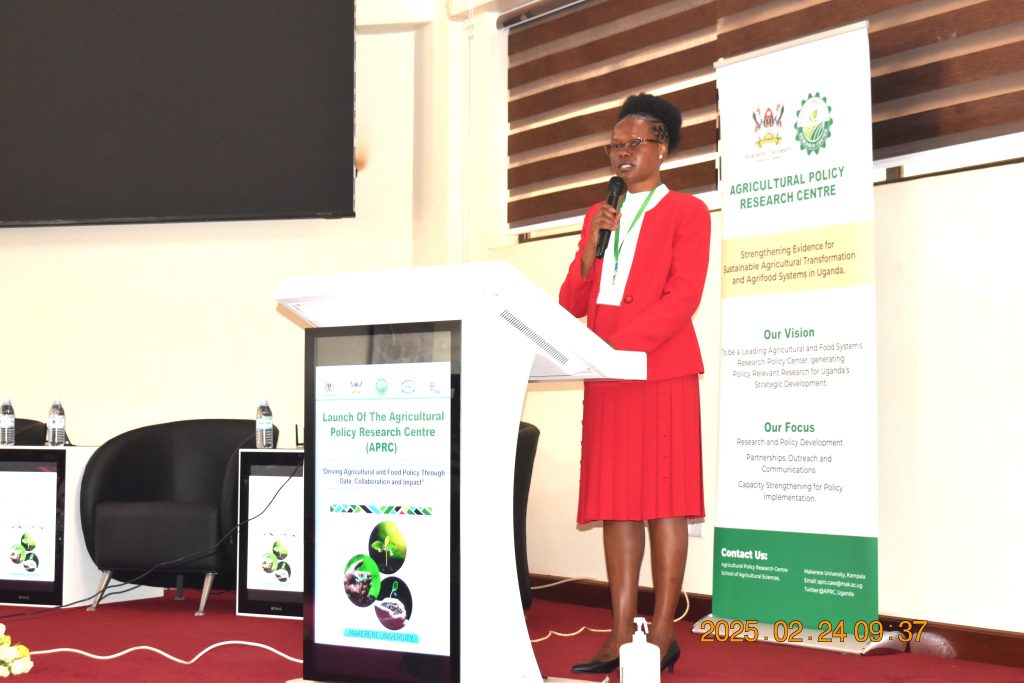
To support the realization of the National Agro-industrialization Agenda and Uganda’s Vision 2040, the College of Agricultural and Environmental Sciences (CAES), with the support of the Africa Network of Agricultural Policy Research Institutes (ANAPRI) and the APEX platform, officially launched the Agricultural Policy Research Centre (APRC) on 24 February 2025. The APRC aims to strengthen evidence-based policymaking, ensuring that Uganda’s agricultural policies are grounded in solid empirical data and research. By employing analytical methods and using nationally representative data, the Centre will provide valuable insights into Uganda’s agri-food systems’ challenges and opportunities. Its goal is to contribute to the creation of sustainable, impactful agricultural policies that enhance food security, stimulate economic growth, and improve the livelihoods of Uganda’s farming communities.
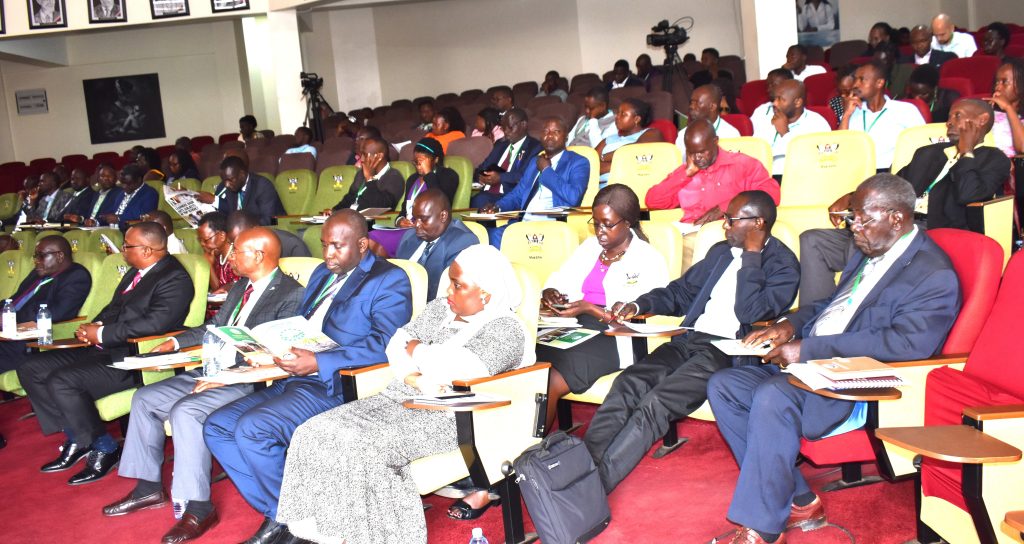
Objectives of the Agricultural Policy Research Centre
The primary goal of the APRC is to promote increased use of research evidence in policy-making, ensuring that policy decisions are grounded in objective, data-driven analysis. The key objectives of the Centre include:
- Supporting the implementation, monitoring, evaluation, and impact assessment of national development plans, programmes, projects, and policies.
- Generating analytical outputs from major datasets, such as the Uganda National Household Survey and the Annual Agricultural Survey, to inform national policy.
- Building the capacity of government Ministries, Departments, and Agencies (MDAs) in monitoring and evaluation, data management, and analytics.
- Strengthening collaborations between CAES and development partners to enhance sustainable agricultural policies.
- Advancing the employability of Applied Economics students through training in data analytics.
- Ensuring effective integration of research outcomes into executive decision-making processes.
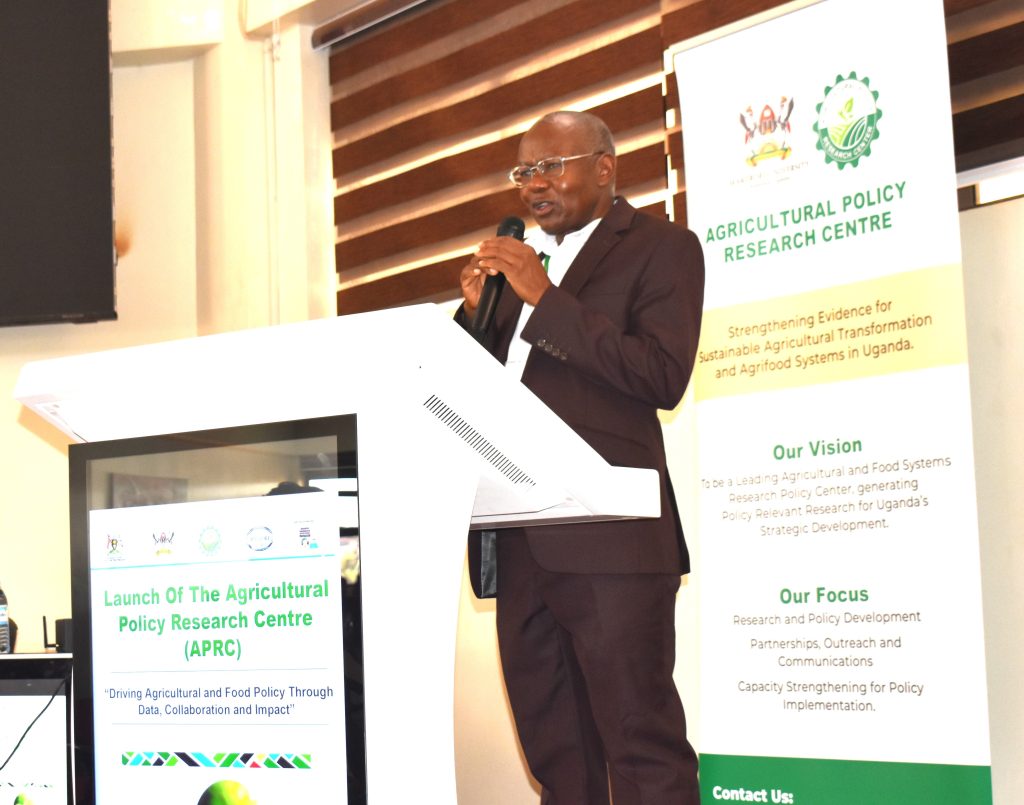
Anticipated Outcomes
The launch of the APRC is expected to yield several key outcomes, including:
- Strengthened integration of research into the national policy-making process.
- Increased awareness and engagement with the Centre’s mandate by stakeholders.
- The establishment of networks among government entities, academic institutions, donors, and research partners.
- Enhanced capacity for MDAs through specialized training in data management and analytics.
- Improved employability for students and researchers in Applied Economics.
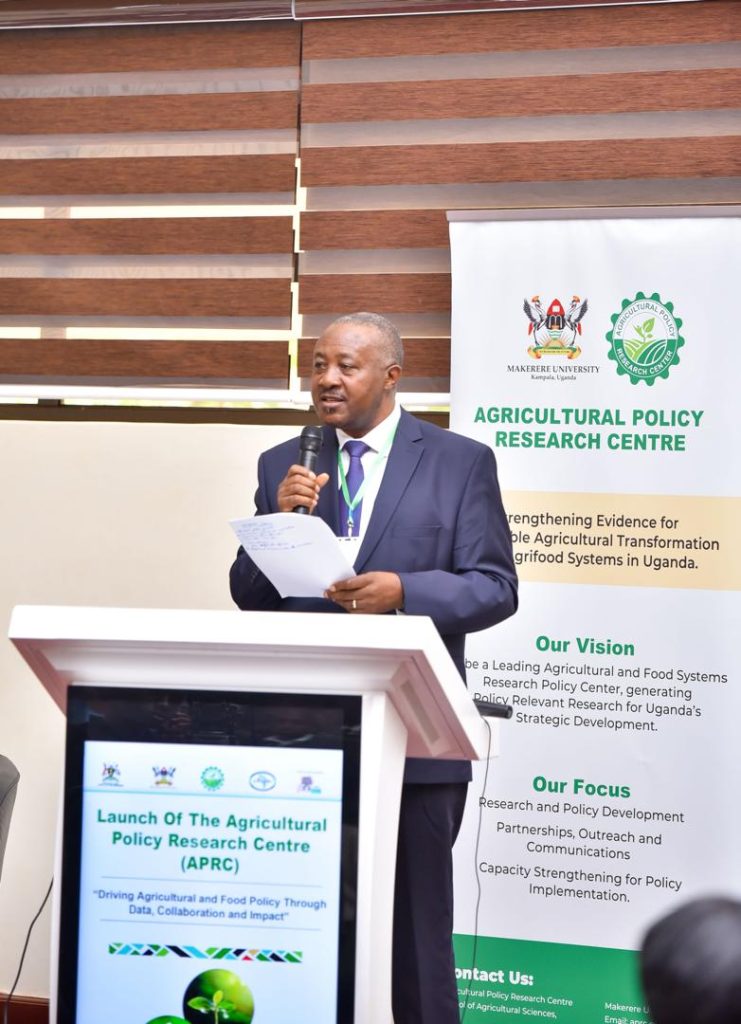
The Inaugural Launch Event
The APRC was officially launched by Uganda’s Minister of Agriculture, Animal Industry, and Fisheries (MAAIF), represented by Mr. Steven Byantwale, the Commissioner for Crop Protection, on 24th February 2025. The launch ceremony was attended by prominent scholars and practitioners from the agricultural sector, who engaged in discussions on the role of academia and think tanks in shaping national policies.
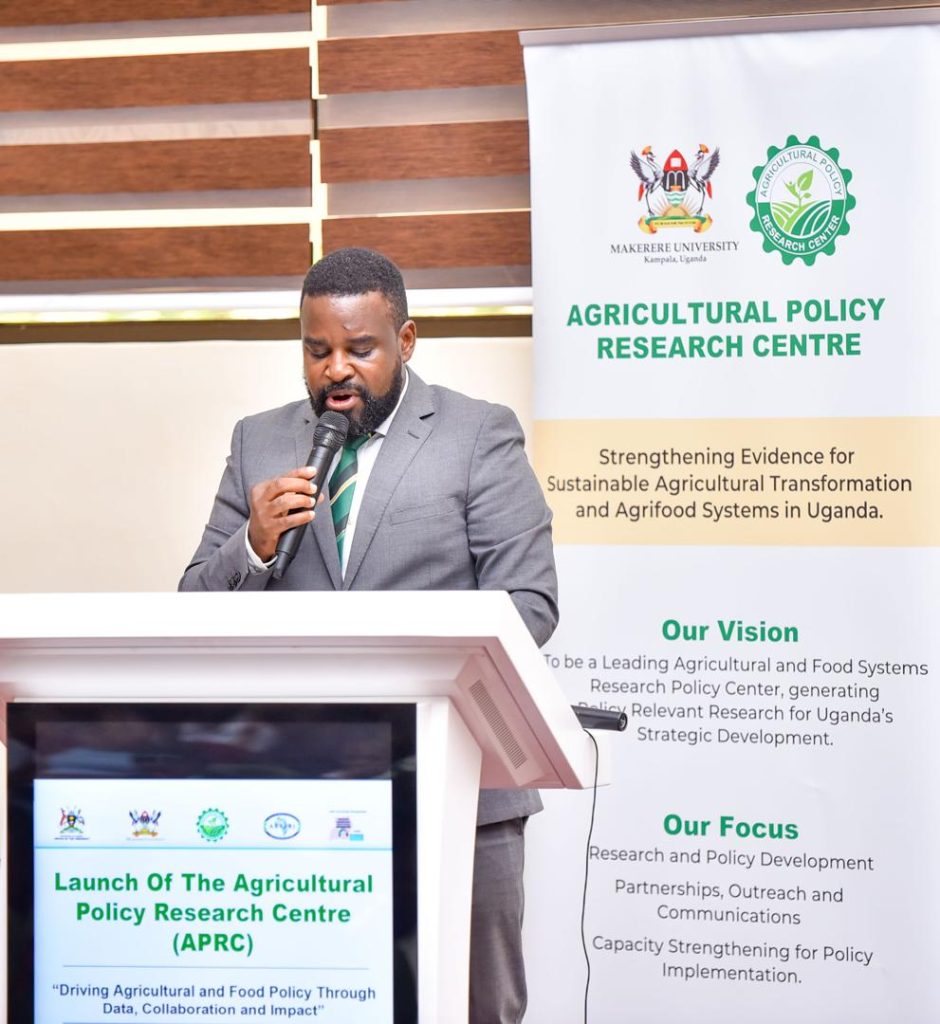
In his speech, the Minister of Agriculture, Animal Industry, and Fisheries (MAAIF), Hon. Frank Tumwebaze highlighted the importance of the APRC, emphasizing its role in improving agricultural policies through research, data, and stakeholder engagement. The Minister noted that past agricultural policies often lacked empirical data, leading to inefficiencies and poor implementation. “The APRC’s focus on rigorous research and collaboration with various sectors will ensure that policies are data-driven, inclusive, and sustainable,” he noted.
Remarks by the Minister of Agriculture, Animal Industry, and Fisheries
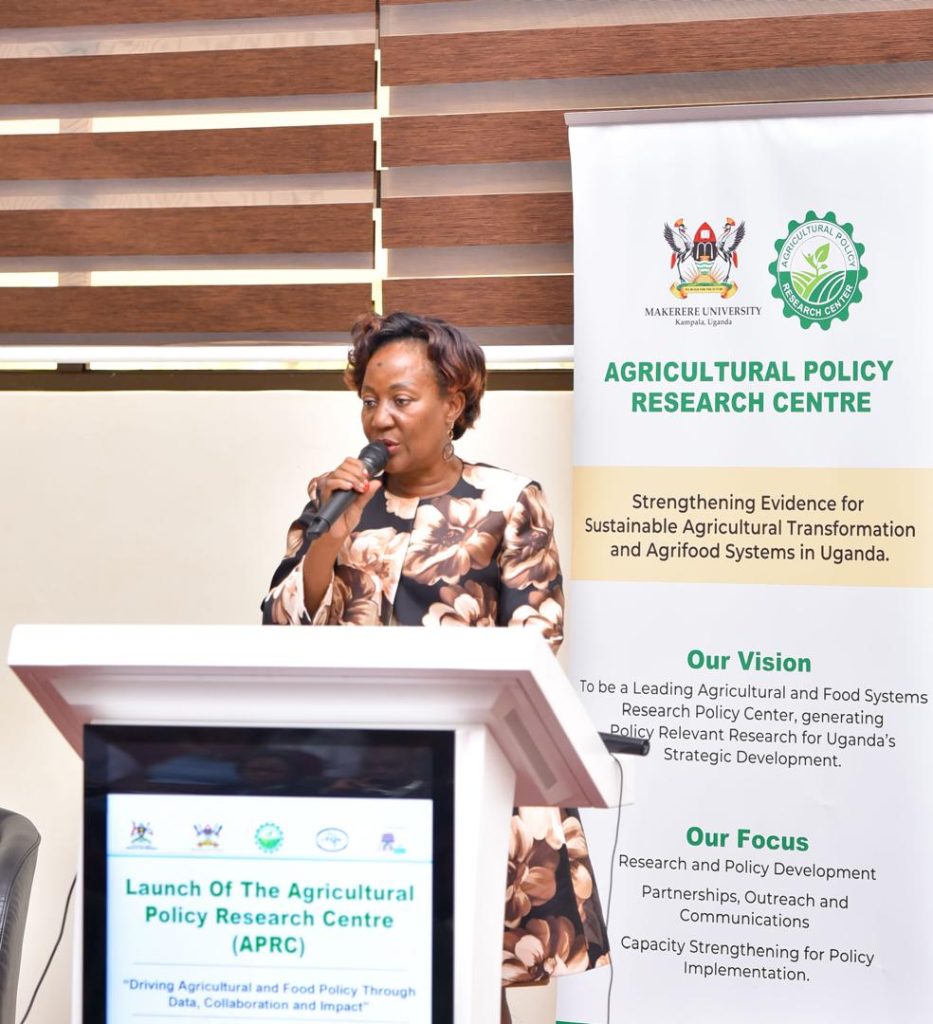
The Minister affirmed the government’s commitment to agricultural transformation and food security in line with Uganda’s strategic priorities. “APRC’s work will be closely aligned with the Ministry, Uganda Bureau of Statistics, and other stakeholders to enhance service delivery, promote agricultural innovation, and improve value chains.”
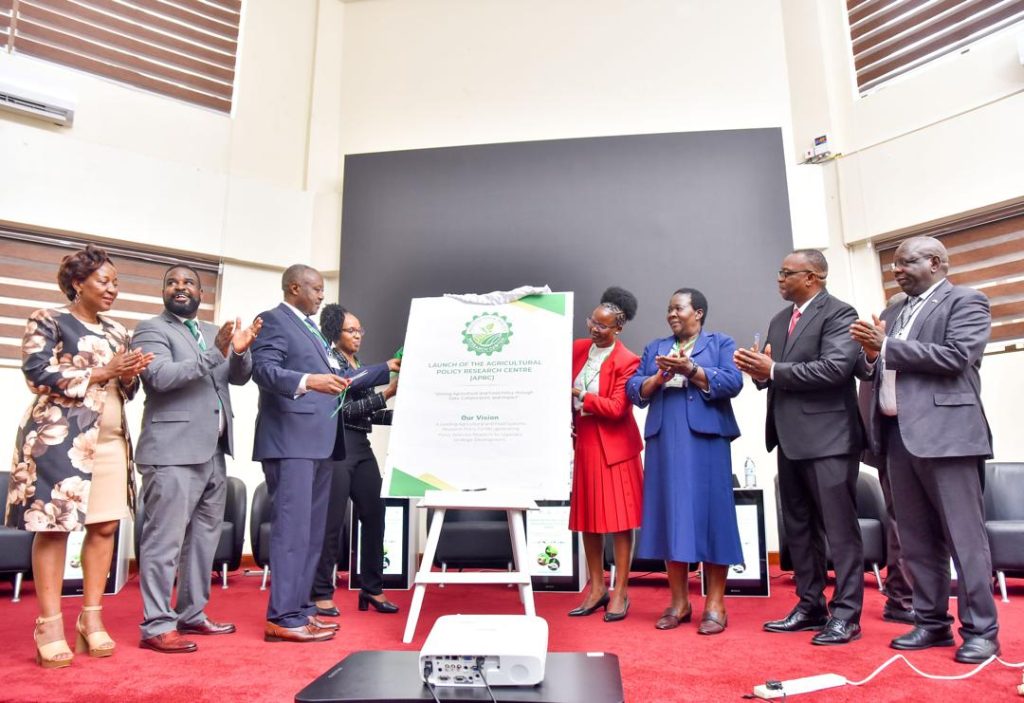
He urged all stakeholders to actively engage with APRC, stressing the need for knowledge-sharing and capacity-building. The Minister extended appreciation to all development partners for their support in funding research and policy development. He encouraged researchers and academics to use APRC as a platform for innovative and impactful solutions.
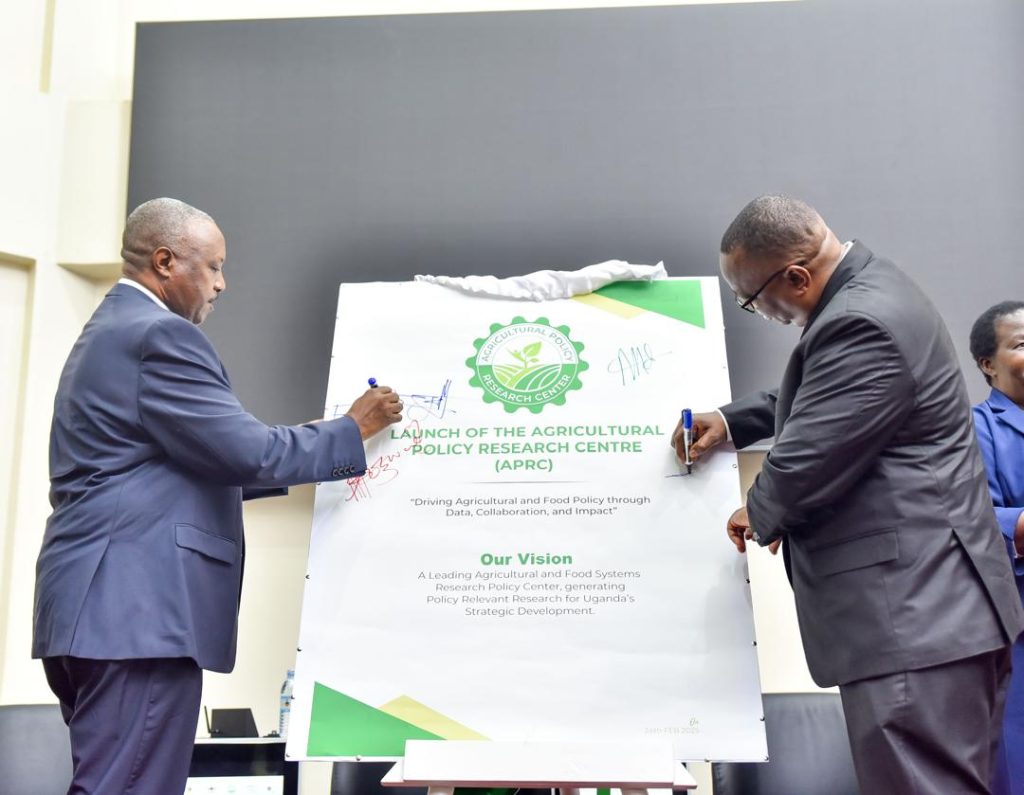
On behalf of the Minister of State for Animal Industry at MAAIF, Hon. Bright Rwamirama, Dr Anna Rose Ademun Okurut, the Commissioner for Animal Health, underscored the importance of connecting research with policy. “For a nation to progress, its actions must be rooted in research,” she emphasized, calling for the creation of policies that can effectively promote the adoption of research findings.
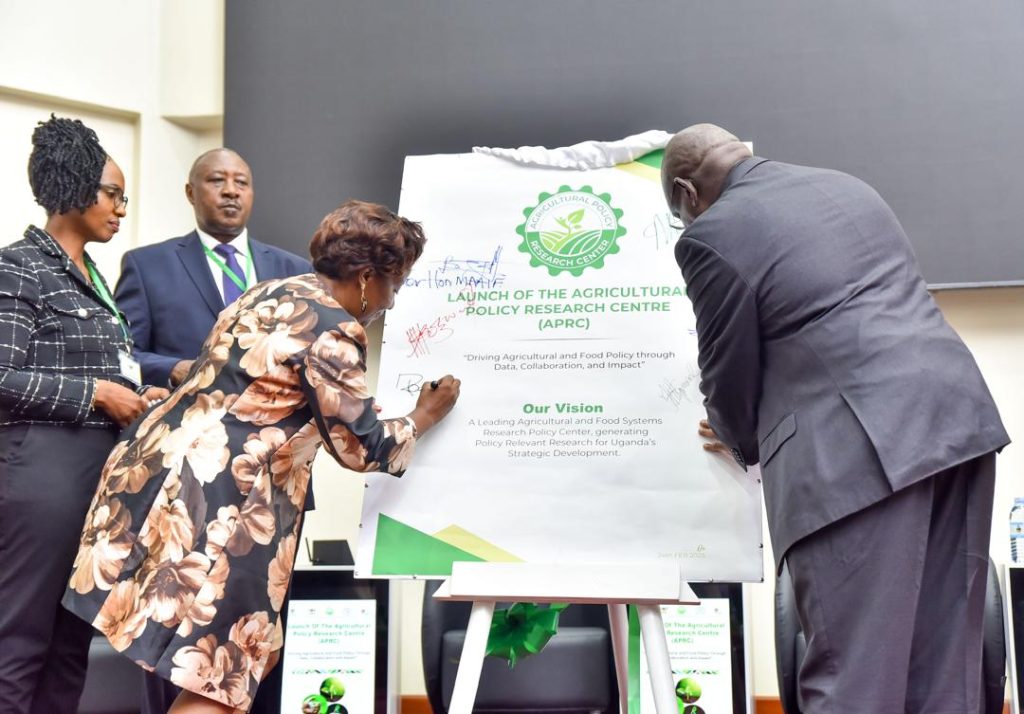
Former Minister of Agriculture, Hon. Victoria Ssekitoleko, highlighted the need for research that tackles the real challenges faced by local communities. She suggested revisions to the Bachelor of Agriculture programme to better align with the evolving demands of the industry. “It’s essential to equip individuals in Agricultural Extension and Agribusiness with skills in public speaking,” she emphasized. Additionally, Hon. Ssekitoleko called for the implementation of policies to regulate the real estate sector, which is believed to be rapidly consuming agricultural land.
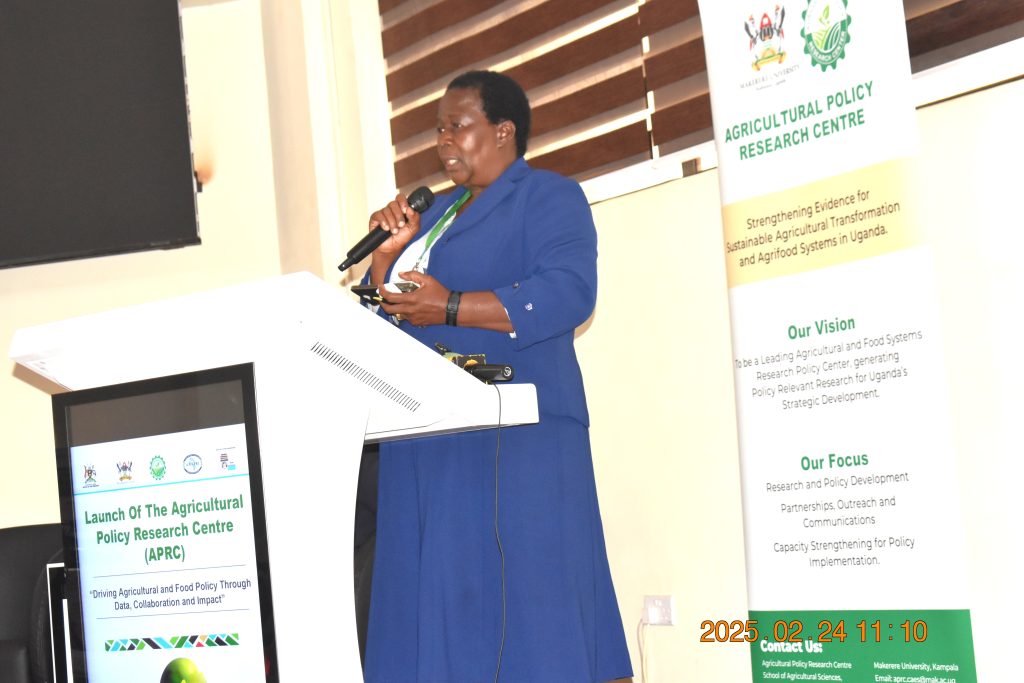
Vice Chancellor’s address
In his address, the Vice Chancellor of Makerere University, represented by Prof. Robert Wamala, Director Research and Graduate Training emphasized the significance of the Agricultural Policy Research Centre (APRC) in advancing evidence-based policy for Uganda’s agricultural sector. “Today marks a significant milestone in our efforts to support evidence-based policy processes in Uganda’s agricultural sector, and as the host institution, we take immense pride in this achievement,” he said.
The Vice Chancellor noted that the APRC will bridge the gap between academic research and policy-making. “This Centre will complement existing efforts and will serve as a hub for cutting-edge policy research, drawing on the expertise of our renowned faculty, researchers, and graduate students. By working closely with government ministries, development partners, the private sector, and civil society organizations, APRC will translate research findings into actionable policies that benefit farmers, agribusinesses, and the broader economy. Additionally, APRC provides a unique learning and training platform for students and young researchers who aspire to shape the future of agricultural policy in Uganda and beyond. I specifically commend the strategic partnership with the APEX platform of the Office of the President in this initiative,” he explained.
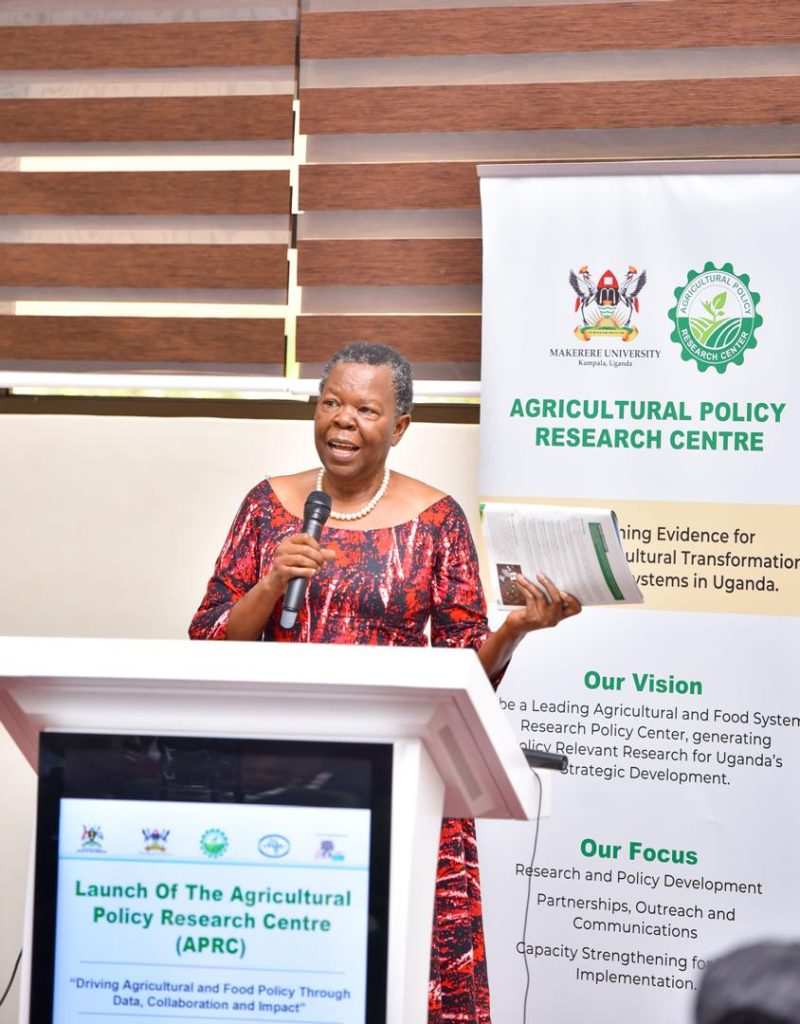
He expressed gratitude to the Government of Uganda for recognizing the importance of the APRC by providing the necessary support for its establishment. He also acknowledged the financial and technical support of the Centre’s development partners, whose contributions are expected to leave a lasting impact on Uganda’s agricultural sector.
In a special way, the Vice Chancellor appreciated the Principal of CAES and the leadership of the Department of Agribusiness and Natural Resource Economics (DANRE) for their dedication to guiding the initiative.
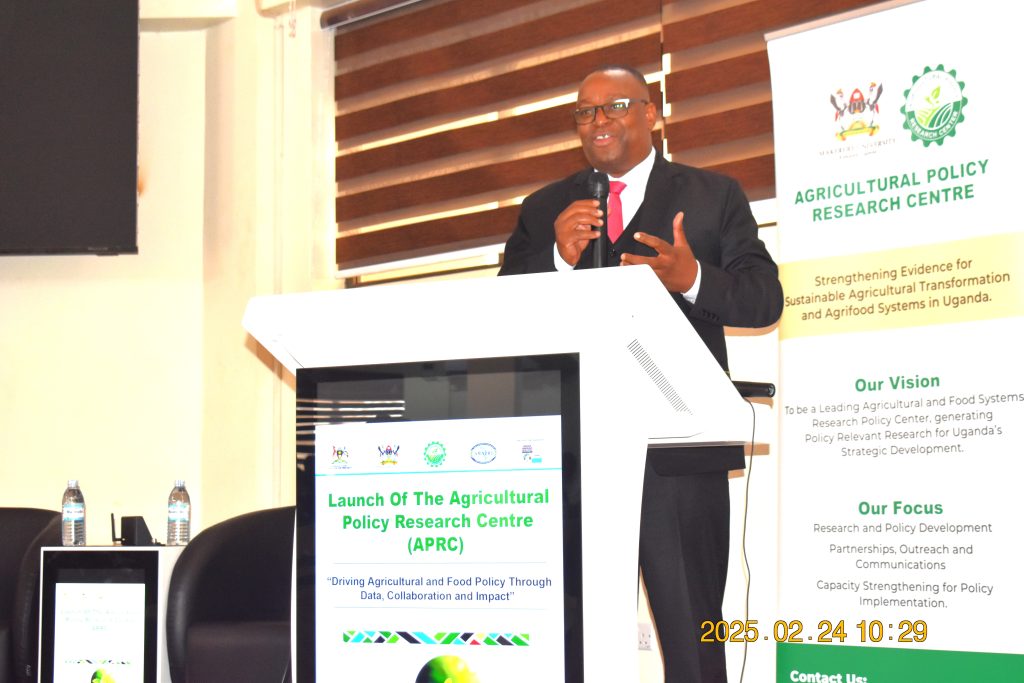
Principal, CAES
Prof. Gorettie Nabanoga, the Principal of CAES, described the launch of the Agricultural Policy Research Centre (APRC) as a significant step in transforming Uganda’s agricultural sector. She explained that the Centre seeks to tackle ongoing challenges, such as low productivity, the impacts of climate change, market inefficiencies, and gaps in policy implementation. “The APRC is designed to bridge the gap between scientific research and policy-making, ensuring that agricultural policies are grounded in credible, data-driven insights,” she said. “Its main objective is to provide empirical evidence that will guide decision-making, monitor agricultural trends, and evaluate the effectiveness of existing policies. The Centre is also committed to building the capacity of future agricultural policy analysts and promoting collaboration among academia, policymakers, and industry stakeholders.”
The Principal explained that the Centre will host policy roundtables, stakeholder forums, and consultations to foster dialogue among government agencies, private sector leaders, farmer organizations, and development partners. “These platforms will drive solutions to Uganda’s agricultural challenges.”
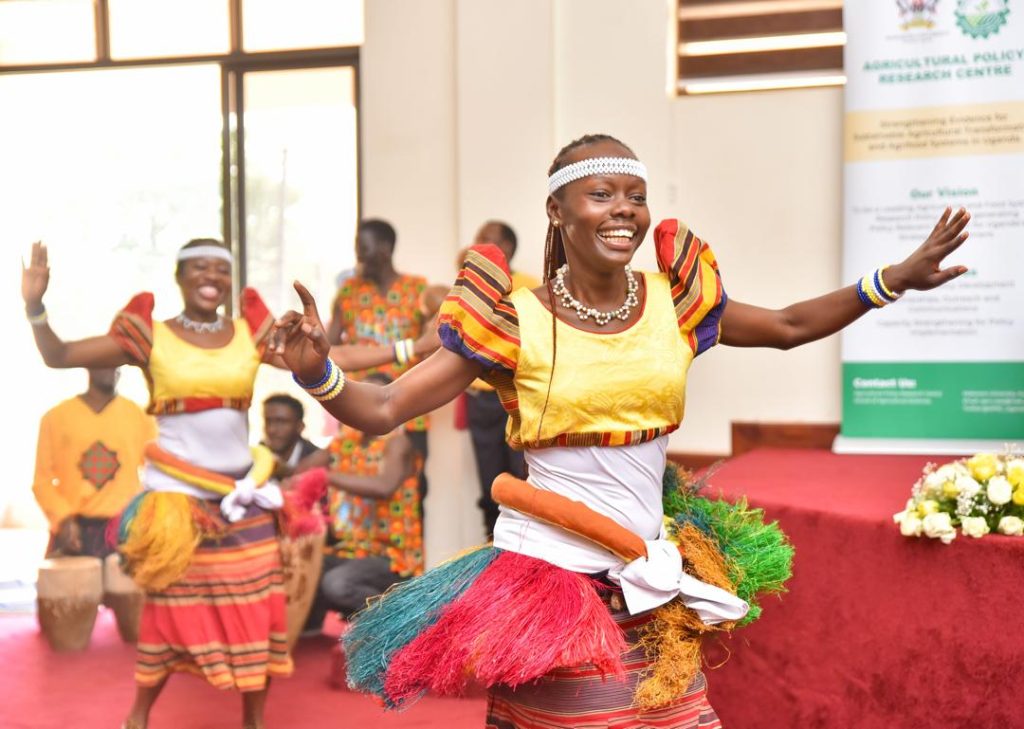
She acknowledged the invaluable support from the Vice Chancellor of Makerere University and the Africa Network of Agricultural Policy Research Institutes (ANAPRI) in establishing the APRC. Prof. Nabanoga invited stakeholders, including researchers, private sector partners, and civil society organizations, to engage with the APRC in generating relevant research and advocating for policy reforms that will shape the future of Uganda’s agriculture.
The workshop featured a panel discussion with experts from both the government and private sectors, exploring the crucial role that academic institutions and think tanks play in shaping national policies. Additionally, the event featured presentations on Uganda’s value chains and the development of its livestock infrastructure.
The APRC is coordinated by Prof. Bernard Bashaasha under the Department of Agribusiness and Natural Resource Economics (DANRE), School of Agricultural Sciences at CAES.
Video of the launch proceedings: https://www.youtube.com/live/_6qoQK5M78A?si=CNurMfE1G4g-e_CF
